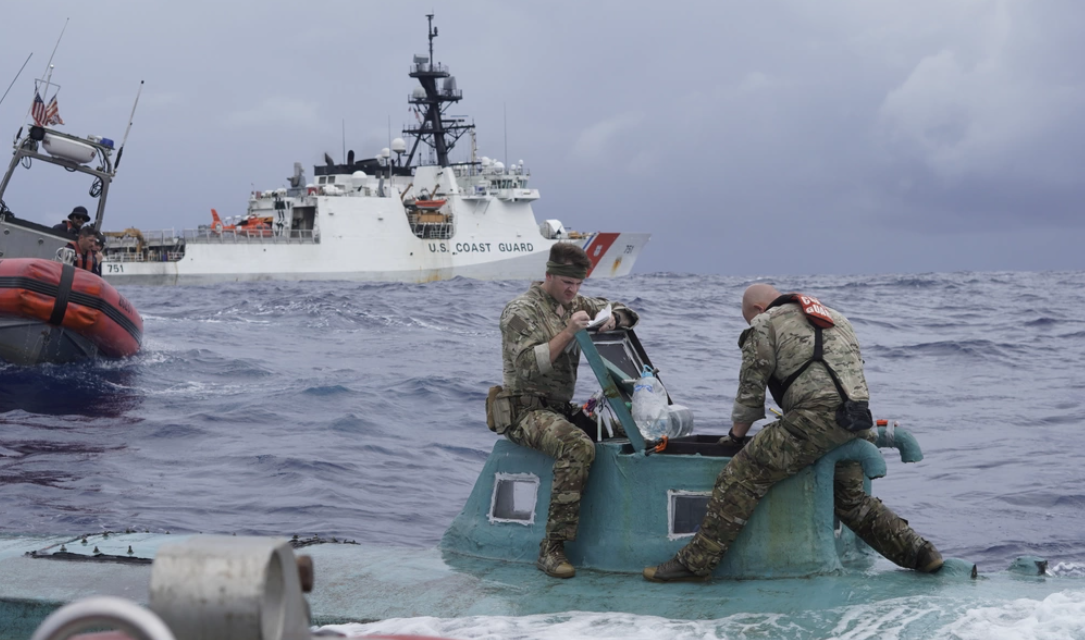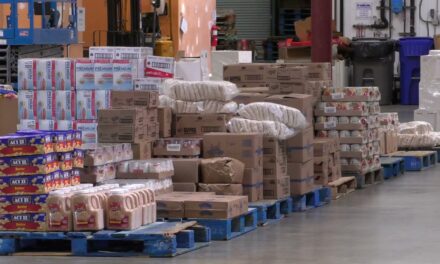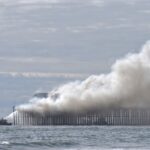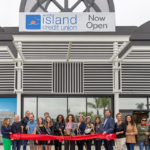
By SDCN Editor
San Diego, CA–The crew of the Coast Guard Cutter Waesche (WMSL 751) offloaded approximately 18,219 pounds of cocaine on Wednesday with an estimated street value of more than $239 million in San Diego.
The offload is a result of six separate suspected drug smuggling vessel interdictions or events off the coasts of Mexico and Central and South America by the Coast Guard Cutters Waesche and Active in November.
On November 7, the Coast Guard Cutter Waesche offloaded 3,417 pounds of cocaine. On Nov. 15, crews offloaded 2,886 pounds of cocaine, and on November 16, crews offloaded 2,513 pounds of the drug.
On Nov. 23, the Coast Guard Cutter Active offloaded 3,825 of cocaine. The following day, crews offloaded 44 pounds of cocaine.
The biggest of the six interdictions was the most recent interdiction, occurring Nov. 20, which was an interdiction of a self-propelled semi-submersible vessel carrying 5,534 pounds of cocaine. The interdiction of the vessel was the first in the Eastern Pacific since 2020.
“All four of our interdictions on this patrol are crucial to the Coast Guard’s efforts to keep illicit drugs off the streets, but our last interdiction of a semi-submersible vessel was noteworthy since it was the first semi-submersible interdicted in the Eastern Pacific in over three years,” said Capt. Robert Mohr, commanding officer of the Waesche. “I am extremely impressed with the crew’s dedication throughout this dynamic patrol. They overcame multiple challenges with collective hard work, ingenuity, and positive attitudes to keep us in pursuit of these cartels and their dangerous drugs. A successful patrol like this one is rewarding and leads to better retention and recruiting efforts because everybody feels a sense of accomplishment.”
Multiple U.S. agencies, including the Departments of Defense, Justice, and Homeland Security, collaborate in the effort to combat transnational organized crime. The Coast Guard, Navy, Customs and Border Protection, FBI, Drug Enforcement Administration, and Immigration and Customs Enforcement, along with allied and international partner agencies, all played a role in counter-narcotic operations.
“I am proud of the unity of effort displayed by the U.S. Coast Guard members aboard the U.S. Coast Guard Cutter Waesche and our partners who stopped these narcotics from entering our Nation through the maritime domain,” said Vice Admiral Andrew Tiongson, commander, of U.S. Coast Guard Pacific Area. “Transnational Criminal Organizations threaten security, undermine human rights, erode governance, and result in public health crises throughout the world. The Coast Guard prides itself as a trusted partner, building and maintaining relationships throughout Central and South America that counter the flow of narcotics and save lives both in the United States and abroad.”
According to Coast Guard officials, the fight against drug cartels in the Eastern Pacific Ocean requires unity of effort in all phases, from detection, monitoring, and interdictions to criminal prosecutions by international partners and U.S. Attorneys’ Offices in districts across the nation. The law enforcement phase of counter-smuggling operations in the Eastern Pacific Ocean is conducted under the authority of the Eleventh Coast Guard District, headquartered in Alameda, California. The interdictions, including the actual boardings, are led and conducted by members of the U.S. Coast Guard.
“The significance of keeping this much cocaine from reaching our shores and streets is, no doubt, life-changing. Without these 9 tons of cocaine on American streets, fewer people will have access to this toxic poison, and hundreds of millions of dollars will not make it into cartel coffers,” said U.S. Attorney Tara McGrath. “The crew of the Waesche and the entire U.S. Coast Guard is to be commended for protecting our nation from the devastation, violence, and addiction that cocaine brings to our communities.”
The Waesche is one of four Legend-class national security cutters homeported in Alameda, California. National security cutters can operate in the most demanding open ocean environments, including the hazardous fisheries of the North Pacific and the vast approaches of the Southern Pacific, where a large amount of narcotics traffic occurs. With robust command, control, communication, computers, intelligence, surveillance and reconnaissance equipment, stern boat launch and aviation facilities, as well as long-endurance station keeping, the national security cutters are afloat operational-level headquarters for complex law enforcement and national security missions involving multiple Coast Guard and partner agency participation.









